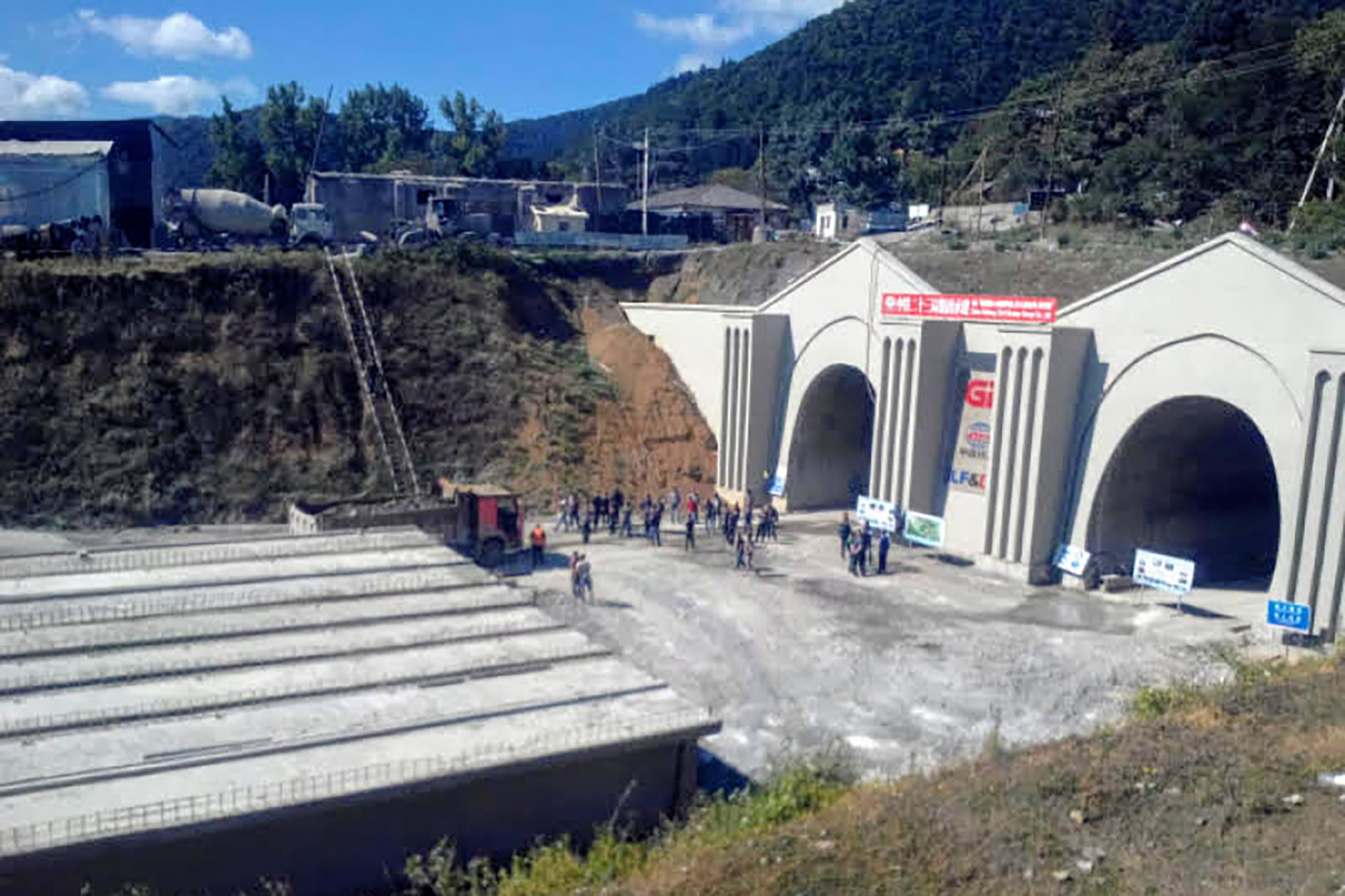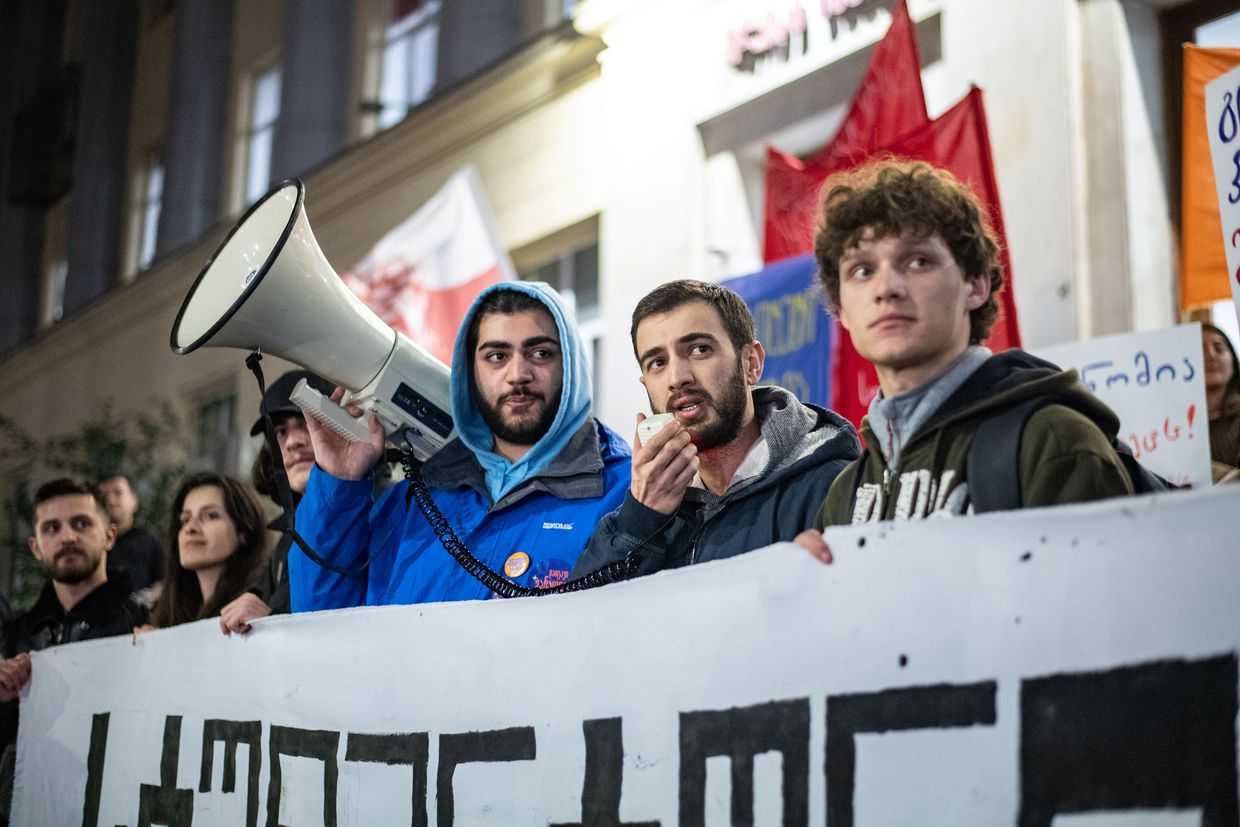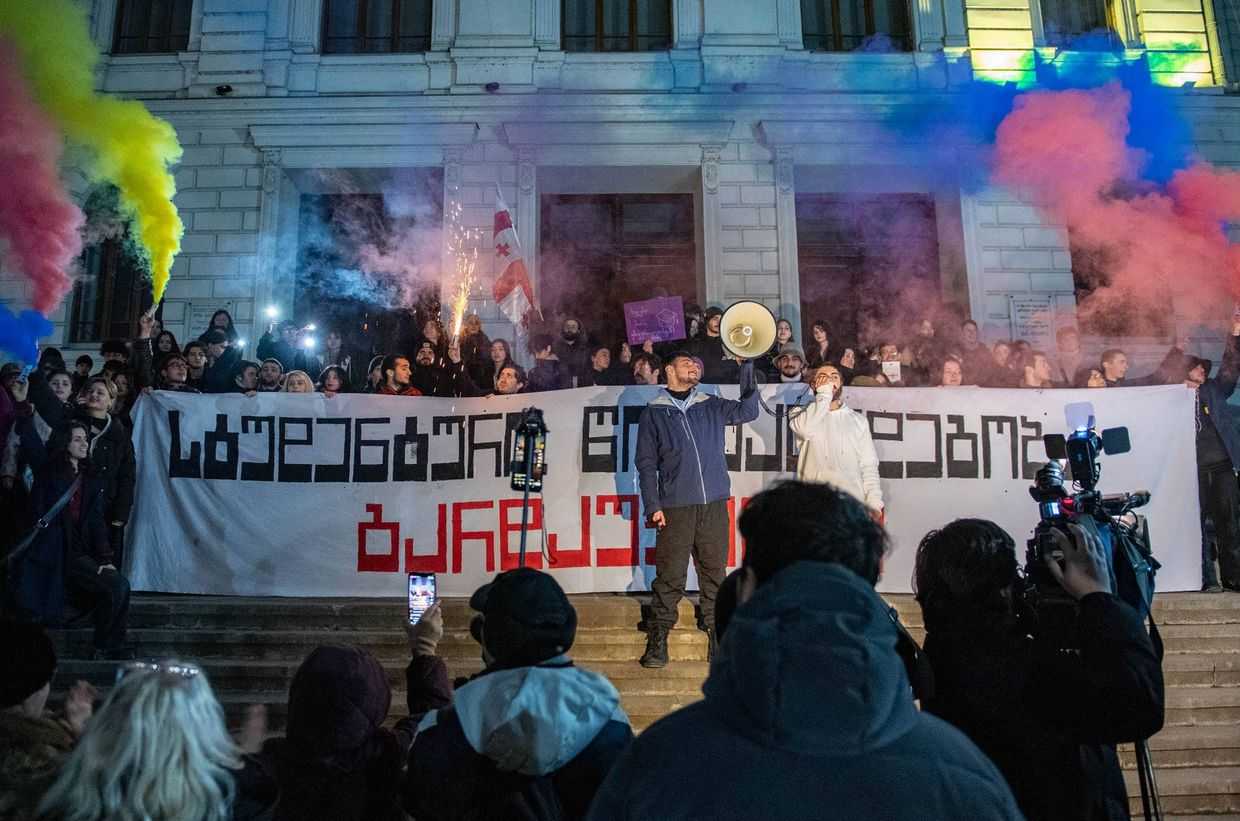

Sixty railway construction workers at an international company in Georgia’s central Shida Kartli region have left their job after unsuccessfully demanding a raise.
The walkout followed a brief unsanctioned strike the previous day.
The workers in Khashuri Municipality left the job following failed negotiations with their employer, China Railway 23rd Bureau Group.
The employees were working on the construction of a railway tunnel in the village of Kvishkheti. The tunnel is part of the east-west railway line modernisation project launched by Georgia in 2010.
Gia Mchedlishvili, a 55-year-old explosive demolition specialist, told OC Media that the company ‘offered no compromise on salaries’ during negotiations on 6 August, after which ‘all 60 workers’ decided to leave.
He said that about 30 labourers from China, ‘who get paid much more than locals for the same job’, have continued to work for the company.
Earlier that day, the Georgian labourers, all employed locally, briefly paralysed construction work demanding an increase from ₾20 ($7) to ₾30 ($10) in their daily wages.
Mchedlishvili, who said he had worked for 7 years on the Kvishkheti section, claimed his daily wage was ₾23 ($8) while others received ‘even less’.
An illegal strike
On 5 August, the 23rd Bureau released a statement saying that the workers had illegally refused to work on 3 August.
The Georgian Constitution guarantees the right to strike but the Labour Code stipulates that employees may only do so 21 days after notifying their employer and the Labour Ministry.
Mchedlishvili confirmed to OC Media that they did not follow the procedures, saying it was a ‘spontaneous’ protest.
Ilia Lezhava, the deputy head of the New Trade Union Of Railway Workers, told OC Media that the illegal strike prevented the union, which is a part of the larger Georgian Trade Unions Confederation, from fully engaging.
Nevertheless, according to Mchedlishvili, the railway union did previously help them to negotiate sick leave, overtime pay, and other unresolved disputes.
Several workers complained to the union on 5 August that they did not have copies of their employment contracts and that there was no interpreter to communicate with the company’s management.
In their statement, the 23rd Bureau insisted that the workers’ daily wage, which ‘also includes bonuses and the overtime pay’, was ‘much higher’ than the employees had asked for.
They also claimed to have offered the workers several options for salary raise schemes but that no agreement was reached.
The company did not specify further.
The China Railway 23rd Bureau Group is a subsidiary to the Chinese state-owned China Railway Construction Corp.
In recent years, Lezhava and the New Trade Union Of Railway Workers have been critical of the state-owned Georgian Railway company for signing a contract with an ‘irresponsible company’ like the 23rd Bureau.
On 6 August, Georgian Railway responded quickly to similar criticism. They confirmed they had signed a contract with the company to build a railway line but protested against ‘attempts to connect’ them with the latest dispute.
The 23rd Bureau
Construction work on the central Georgian section of the east-west railway has been a source for controversy on several occasions.
In 2016, about 100 employees working on a tunnel in Zvare, which would connect Kharagauli Municipality with Khashuri, went on strike demanding overtime pay, paid holidays, and protective safety clothing.
In October, after two months of protests and a two-week-long strike, the 23rd Bureau agreed to fulfil their demands, but relations between the company and employees reportedly deteriorated thereafter.
A month later, police charged three Chinese citizens for ‘violence’ after workers and the Railway Union claimed that representatives of the company had beaten up several workers and local residents.
The violent incident on 2 November triggered week-long protests from residents of Kvishkheti, paralysing the company’s operations.
Labour rights advocates in Tbilisi simultaneously rallied in support, gathering in front of Georgian Railway’s headquarters.
At the rally, which was organised by the Solidarity Network, activists also warned against ‘chauvinism’ after reports of xenophobic sentiments among workers and in social media.
Six months later, In July 2017, two workers were injured after the roof collapsed inside a tunnel in Bezhatubani, which was also to connect Khashuri Municipality with western Georgia.

On 22 January 2018, three workers were injured by a planned explosion during the railway tunnel works on the same Bezhatubani worksite, an accident that followed a strike where workers complained about a lack of proper safety equipment.
In October 2018, police detained the deputy head of the Kvishkheti section of the Bureau and his translator for assaulting two journalists from TV channel Rustavi 2 and obstructing their work. The reporter was enquiring about ‘possible violations’ by the company during construction.
[Read on the earlier protest in Khashuri Municipality: Welcome to ‘hell’: working on a Georgian railway construction site]









